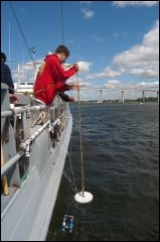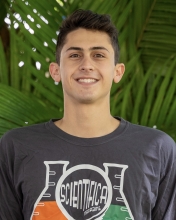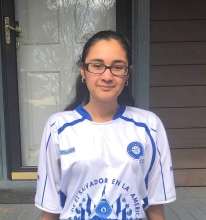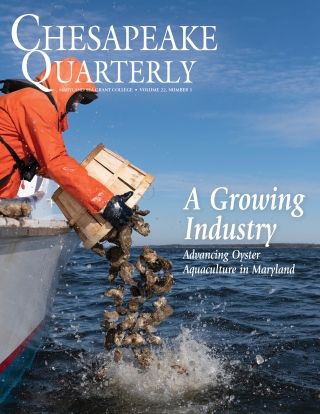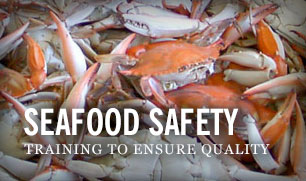Eight students will be presenting the summer work at the Ocean Sciences Meeting in March 2022!
Jonathan Doyle, Duke University
Class Year:
2005Mentor:
Andy Lazur, Ph.D.Project Title:
Effects of Diets Enriched with Different Fatty Acids on Survival and Growth of Clownfish Fry, Amphiprion frenatus and Amphiprion ocellaris
Abstract:
Presently, many species of marine fish are being captured for their decorative characteristics in a fish tank, rather than their nutritional qualities on the dinner table. These fish are called marine ornamentals, and they are currently on the decline due to over harvesting and loss of habitat. One of the main fish in this category is the clownfish. Raising these fish in a controlled aquaculture setting is a possible solution to the declining populations. I have tested several nutritional enrichments on rotifer/Artemia diets for clownfish larvae. The three enrichments are 1) Aquagrow Advantage 10% docosahexaenoic acid (DHA, 22:6n - 3), 10% protein, 23% fat, 9% carbohydrate, 2) Aquagrow Advantage-EN 10% DHA + 750 mg/kg astaxanthin, 24% protein, 24% fat, 24% carbohydrate, and 3) Aquagrow Advantage-BL 10% DHA, 2% arachidonic acid (ARA, 20:4n - 6) and eicosapentaenoic acid (EPA, 20:5n - 3), 13% protein, 25% fat, 12% carbohydrate. The control for this experiment is rotifers fed nanochloropsis algae (0.22% DHA) followed by newly hatched Artemia (1.1% DHA). The survival, growth, and rate of metamorphosis of these clownfish were tested for each of the four diets. I predict that the enriched diets will lead to better survival, more growth, and faster metamorphosis than the unenriched diet.
